|
Trainees represent more than half of all OHBM members (63% at OHBM 2018 in Singapore). In Singapore, the Student and Postdoc Special Interest Group (SP-SIG) organised the 'Secrets behind Success' Career Development Symposium and Lunch with Mentors event, where we heard very heartfelt and honest talks from Lucina Uddin and Tom Nichols, who talked about switching from academia to industry, and back again. The SP-SIG also hosted the Monday Night Social/Open Science Gala at 1-Altitude, with a breath-taking view of Marina Bay during the OHBM conference in Singapore. Beyond the annual conference, the SP-SIG provides ongoing support for trainees via the online international mentoring programme. This programme pairs researchers across the world, providing new links between OHBM members at different stages of their careers. Open Science Gala ‘Secrets behind Success' Career Development Symposium and Lunch with Mentors event 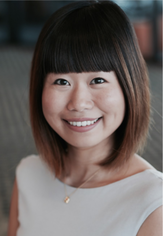 Ayaka Ando Ayaka Ando We sat down with Ayaka Ando, the current (2018-2019) Chair of the SP-SIG and discussed what they have been up to and their plans for the new year. Chiara Caldinelli (CC): Hi Ayaka, tell us a bit about yourself. Ayaka Ando (AA): My name is Ayaka and I am a postdoc at the Department of Child and Adolescent Psychiatry at Heidelberg University in Germany, working on multimodal imaging. I am particularly focussed on kids with psychiatric disorder development. CC: Tell us about the upcoming Student and Postdoc SIG activities in Rome 2019? AA: We are definitely growing and expanding our activities in Rome! Of course we have our annual Career Development and Mentoring Symposium, where Dr Melanie Stefan and Dr Danielle Bassett will discuss their own journeys towards success in academia. As in Singapore, the symposium will be followed by our catered ‘Lunch with Mentors’ event where trainees will get to sit down and informally chat about career development with both new and established PIs, as well as industry experts (learn more of our Lunch with Mentors event). We are also very excited about the Monday Night Social/Open Science Gala event, which will be hosted at the beautiful gardens of Rome at the Vyta Casa Del Cinema a Villa Borghese. We are also delighted to announce our new venture! We will be hosting a dedicated Student and Postdoc SIG space during this year’s annual meeting. One room will be a dedicated space for mentors and mentees of the International Online Mentoring Programme (or any mentor/mentees who would like to catch up) to meet. In another room, we will be hosting a number of equality- and career development-oriented workshops. In the wake of the #MeToo movement, we have invited a special international guest from New York, Emma Kaywin, who is a conflict mediator and a sexual health educator. She’ll be advising trainees in managing their interpersonal relationships with one another and their superiors. Additionally, we will host a career switching workshop for trainees considering transitioning from academia to industry. We are very excited about the new SP-SIG space and welcome everyone and anyone who is interested to join the workshops. Stay tuned for details! CC: Why do you think a special interest group at OHBM representing trainees is needed? AA: The trainees represent more than half of the OHBM members, so it’s very important that there is a group to represent their needs. The SP-SIG’s goal is to create a community and a platform to support the development of trainees. That’s why we host the International Online Mentorship Programme, as well as organise events geared towards career development and networking. We are really passionate about supporting, empowering and creating a positive and encouraging atmosphere for trainees who are not only pursuing careers in academia, but also thinking about transitioning into industry. CC: In today’s world of increasingly difficult funding situations, trainees are actively seeking non-academic career opportunities. What do you think are the biggest hurdles OHBM trainees face in doing so? AA: I think the biggest challenges may be that a lot of us have a pure academic experience within our careers and we don’t know what skills are needed, what industry employers are looking for, what being in industry really means. So we don’t know exactly what it is like to be in industry, and only a few of us do industrial internships. For example, Tom Nichols said in last year’s “Secrets Behind Success” symposium that while he worked in industry, he noticed that there was a very fast change-over of staff. People who’s never had experience in industry may not be aware of this. I think academia is quite a particular environment, quite different from industry. It’s therefore really important to inform ourselves as much as possible. To help with this, we are trying to organize our mentorship programme in cooperation with people working in industry, so that the trainees have the opportunity to talk to people outside of academia. CC: What are your plans to address these issues in Rome 2019? Are there some initiatives that you would like to highlight? AA: Yes, definitely! We went around the industry exhibitors throughout the conference in Singapore to recruit more industry people to be involved in the International Online Mentoring Programme. We also managed to have three industry mentor tables at the Lunch with Mentors event at OHBM 2018 in Singapore. Looking at the statistics from our online mentoring programme on mentees’ long-term goals and the advice that they are seeking from mentors, we noticed that there were increases in percentage of people interested in industry positions. Therefore, we are trying our best to recruit more industry mentors. We are also organising a career-switching workshop at the SP-SIG Space in Rome this year so I hope that this will be helpful to trainees. CC: How diverse is the participation in the many SIG initiatives? And what can be done to improve this? AA: We already have a good gender distribution within our committee, as well as in our mentoring programme, which we are really proud of. But we still need to work on the geographic diversity around the world - we are very Europe and US-heavy. We have a smaller portion from Australasia, and an even smaller representation from South America, the Middle East and Africa. It would be great to get more people involved from these underrepresented regions. What would be really nice would be to talk to people from around the world who will be at the conference and see what their needs are and how we can get them more involved. Also, this year, we have a wider representation within the SP-SIG organising members so I hope this will help in the participation too! CC: What is the one thing that you have learnt from your tenure in the SIG? And how has this helped you in other facets of your life? AA: I think one of the most important things about being in a committee is to be a team player. That is definitely important! I think researchers should generally be good at this because you have to collaborate, you have lab members and you need to work together. But one key aspect of being a team player that I have particularly realised in this committee is that you should have faith in the people in your team - most people are very, very capable and I can trust them to do things that need to be done in their own way. I guess the sort of chair I aspire to be is someone who oversees and encourages, rather than micromanages. For example, you are the social coordinator, Chiara, so I want to give you space to do it your own way and I trust that you will pull off something really awesome in Rome too! That’s what I’ve learnt from Michele, our previous chair, she was like that and I think she was an excellent leader. She trusted us that we would do a good job. I also feel that everyone in this committee is very fluid with their positions. It has never been the case like ‘I am the treasurer, I only count the money’. I think everyone is very cooperative and works together very effectively to organise and host the each event and programme we have today. I also think that promoting positivity, encouragement and transparent communication is very important and key to naturally motivate and create an open, collaborative environment. So, working in a team, trusting the team members and bringing positive energy are the main things that I try and incorporate in my life.
0 Comments
Your comment will be posted after it is approved.
Leave a Reply. |
BLOG HOME
Archives
January 2024
|
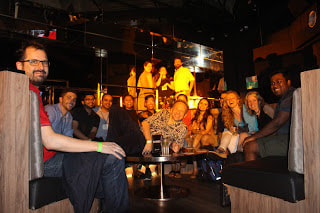
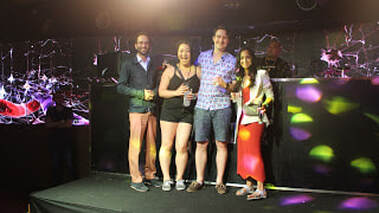
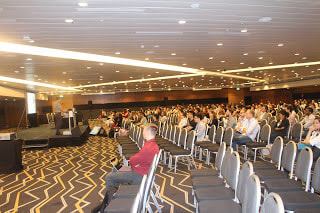
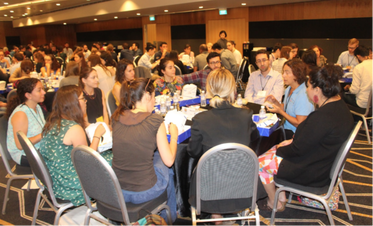
 RSS Feed
RSS Feed